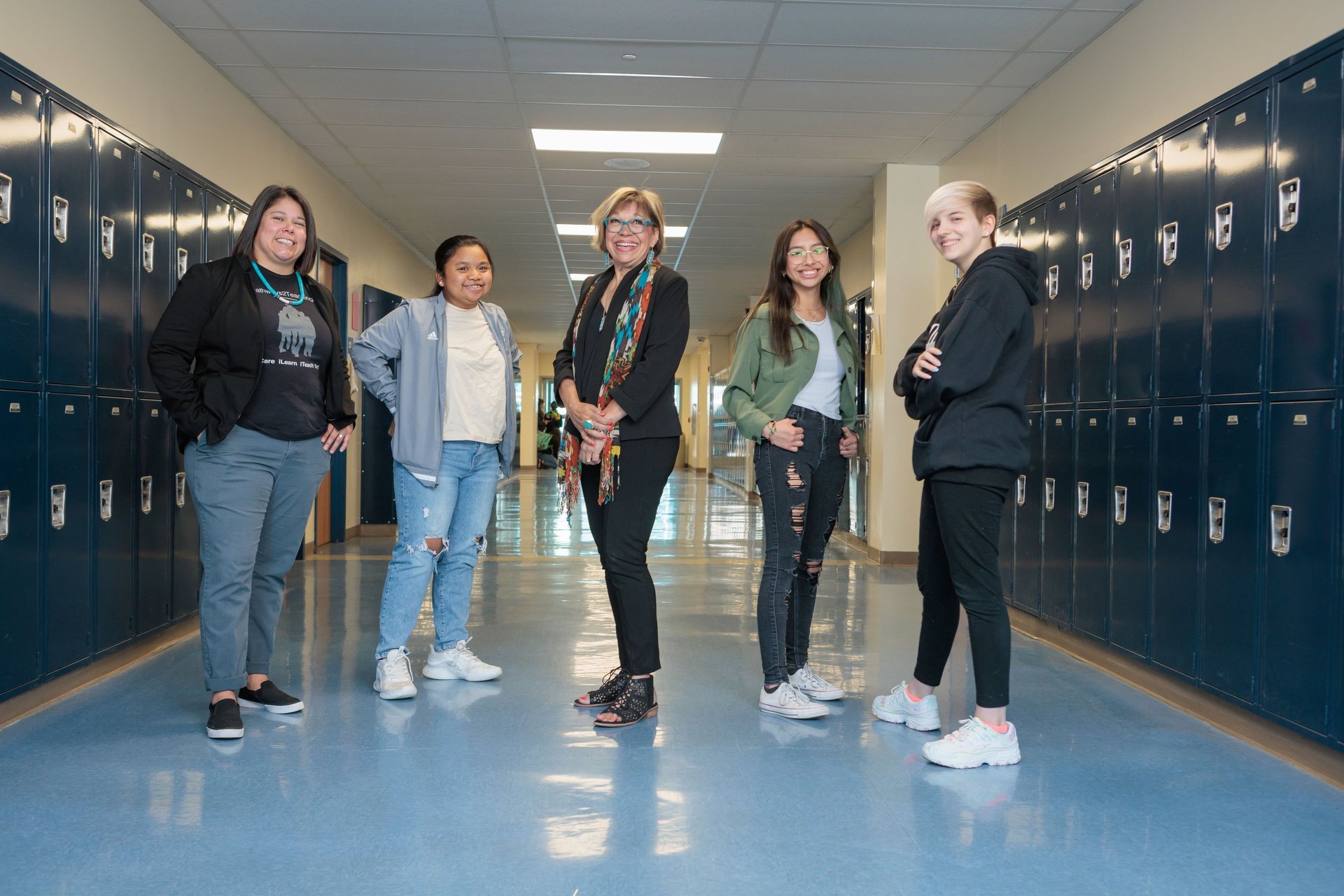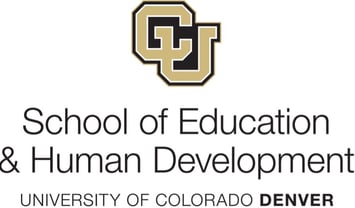
Margarita Bianco, EdD
Education Foundations Program Lead
Associate Professor
School of Education and Human Development
University of Colorado Denver
PROMOTION TO FULL PROFESSOR REVIEW DOSSIER
Summary Statement
Dear External Reviewer,
Thank you for agreeing to serve as an external reviewer in my application for promotion to Full Professor in the School of Education and Human Development (SEHD) at the University of Colorado Denver. I am currently an Associate Professor and Program Lead in the Educational Foundations discipline area, having joined SEHD in 2006 and earned tenure and promotion in 2013. This year marks my 52nd year in education, a journey that began in 1973 as a paraprofessional and evolved through more than two decades as a classroom teacher in both public and private schools, including roles in special education, general education (K-12), English as a Second Language (ESL), and gifted education. For the past 20 years, I have dedicated my career to preparing future educators and scholars through justice-centered, community-responsive teacher preparation programs.
I am honored to be considered for promotion to Full Professor and have used the SEHD Retention, Tenure, and Promotion (RTP) Standards and Criteria (2021) to guide my dossier. I deeply appreciate your willingness to review my materials and provide your expert evaluation.
Research
Since earning tenure, my scholarly and teaching endeavors have remained tightly interconnected, rooted in equity-driven educator development and justice-centered research and practice. My research program is organized around two broad complementary lines of inquiry that collectively address systemic inequities in education.
Research Strand 1: Building a More Just and Representative Educator Workforce
My first research strand centers on diversifying the educator workforce through recruitment, preparation, and retention of teachers of color. Since 2010, I have developed and led Pathways2Teaching®, a high school-to-teacher preparation program that positions students of color as future educators and community leaders through culturally relevant curricula, mentoring, and emphasis on critical consciousness and authentic cariño (Bianco, 2025). My scholarship examines what makes Grow Your Own models transformative for students of color with a particular focus on the experiences of Black / African American and Latine students in the program (Goings, Brandehoff, & Bianco, Gist, White, & Bianco, 2018; Russell, Viesca, & Bianco, 2016
2018; Martin & Bianco, 2024). This work includes qualitative and quantitative studies on student motivations and community-university partnerships. I also co-edited the recruitment section of The Handbook of Research on Teachers of Color and Indigenous Teachers (Gist & Bristol, 2022).
A sub strand in this area includes policy-focused research (Carver-Thomas, Bianco, Goings, & Hyler) publishing articles and technical reports identifying strategies to recruit, prepare, and retain teachers of color at scale (Bianco, Brandehoff, Lynn, Tandon, & Jefferson, 2025).
Research Strand 2: Equity and Access for Underrepresented Gifted Learners
This strand disrupts systemic inequities in gifted education for underrepresented students. My foundational work documented bias in gifted identification through disability labels (Bianco, 2005) and gender disparities in referrals (Bianco, Harris, Garrison-Wade, & Leech, 2011). I have since developed strength-based, culturally responsive frameworks including Response to Intervention (RTI) models for gifted, multilingual learners (Bianco & Harris, 2014), a framework for diverse twice-exceptional students (Bianco, Brandehoff, & Castillo-Tristani, 2024), and inclusive practices for gifted students with disabilities (Crepeau-Hobson & Bianco, 2013). This work challenges deficit-based paradigms and advances asset-based approaches expanding access to advanced learning opportunities.
I have published over 52 manuscripts and presented my work more than 141 times, 44% of which were keynote speeches and invited presentations at international, national, and state conferences. Since 2013, I have published 16 peer-reviewed journal articles, 7 peer-reviewed book chapters, and 2 technical reports and policy papers, 15 publications of which are co-authored with doctoral students and early career scholars of color. I co-edited and introduced the recruitment section in the Handbook of Research on Teachers of Color and Indigenous Teachers (AERA, 2022) and co-founded the Grow Your Own Collective and the SEHD Educator Diversity Research Team, which led our partnership with the National Center for Research on Educator Diversity.
My commitment to building equity-centered research, teaching, and service has been recognized at both the national and university levels through a range of prestigious awards. These honors include the Outstanding Researcher of the Year (2004) from the International Council for Learning Disabilities (CLD), the Teacher Diversity Research Award from the American Association of Colleges for Teacher Education (AACTE)Diversified Teacher Workforce (2020), and the Diversity Populations Award from the Colorado Association for Gifted and Talented (CAGT) (2024).
Teaching and Mentorship
Teaching is central to my professional identity. I have designed and taught over 22 unique courses across pre-collegiate, undergraduate, graduate, and doctoral levels (face to face, online and hybrid) emphasizing asset-based special education, culturally responsive pedagogy, and critical examination of educational policy. My mentorship includes guidance of over 35 doctoral students, most of whom are first-generation scholars and educators of color engaged in justice-centered research. Since achieving tenure, more than 60% of my publications have featured doctoral students and junior faculty as first or co-authors, reflecting my commitment to empowering emerging scholars through co-presenting and co-publishing opportunities.
I have led the development of several equity-driven initiatives within SEHD, including a Paraprofessional Certificate Program, dual enrollment initiatives, and professional development for educators implementing Pathways2Teaching® curriculum. In 2024, I established an international partnership with Kepler College in Rwanda to expand access to our justice-focused EdD program and am currently developing a collaboration with the CU Denver Prison Education Program (PEP) to offer an Education Foundation course at four correctional facilities, further advancing our commitment to justice-centered education.
My dedication to transformative teaching and mentorship has been recognized with the Timmerhaus Ambassadorship for Excellence in Teaching (2017-2019) the University’s most prestigious teaching honor, as well as the University of Colorado System-wide Excellence in Teaching Award (2012) and SEHD’s Excellence in Teaching Award (2012). These honors, together with the President’s Diversity Award (2011) , Rosa Parks Diversity Award 2011), and CAGT Diversity Populations Award (2024), underscore my belief that teaching and research are reciprocal, mutually reinforcing tools for transformation, grounded in social justice, rigor, and accountability to the communities we serve.
Service and Leadership
My service record reflects a deep commitment to advancing justice and inclusion within and beyond the academy through leading programs, chairing search committees, and serving as chair of the Promotion and Tenure Committee. I was selected as the 2022-2023 Chancellor's Urban Engaged Scholar at the University of Colorado Denver and named one of Diverse: Issues in Higher Education's Leading Women in Higher Education (2019).
I am deeply committed to preparing the next generation of critically conscious, diverse future educators who are ready to challenge deficit-based frameworks that constrain our definitions of brilliance, giftedness, and educational potential. Thank you for considering my dossier and for evaluating the impact of my work as a scholar, educator, and community-engaged practitioner



